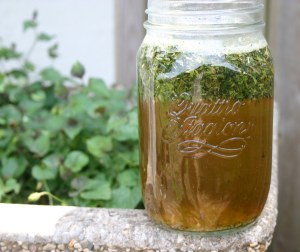Women suffer from drug and alcohol addiction in large numbers in society. Yet, they often remain actively using and fearful of seeking treatment. As per SAMHSA [Substance Abuse and mental Health administration] statistics up to 6.9 million women may need treatment but are not reaching out to get it. Another 118,000 are waiting to enter treatment and 319,000 feel they need treatment but are not making any effort to get it.
Even today there is more social stigma and shame associated with any type of addictive illness among women than with their male counterparts. Society also has preconceived ideas about what a mother should be and having an active addiction does not fit with their idea of a good mother. A large percentage of women who go on to develop addictive illnesses have had childhood trauma, including childhood sexual abuse. They are often victimized again as adults they go on to develop addictions. They may be victims of domestic violence, rape or exchange sex for drugs and feel demeaned and humiliated in the process. All this leads to a vicious cycle of self medication and re- traumatization. They feel judged or treated differently by some of the men in group therapy sessions or 12-step meetings once they share these traumatic experiences. Their husbands and boyfriends are often frustrated and very angry about the addiction. They may leave and take custody of the children, at times not allowing the mother to see them out of a feeling that this is best for their kids.
Pregnant women who are actively using drugs and/or alcohol have significant challenges. This is a time where most women try their best to stop or cut back on their use. Access to treatment is often an issue, especially to a mothers program where they can stay with their newborn after the delivery, to stay clean and strengthen their recovery during this crucial period of their lives. They may not get any prenatal care because of fear of disclosure about their active use and the effect it may have on custody of older kids and the new baby.
Engaging women, including mothers in treatment and recovery can have far reaching positive effects on their lives, their childrenâs lives and families and society in general. Treating a pregnant drug using mother has significant benefits to both the mother and baby. In a large percentage of these families the children remain very emotionally attached to their mother and separation from them into foster homes or even a family member does not fill the hole left behind by the missing mother.
Women with addictive illnesses face unique challenges as they try and access treatment services especially if they have children. There are very few programs around the country that allow them to keep their children with them while they go through residential treatment. If they choose to attend an outpatient program, it typically requires several hours of group therapy and other programming, a few days a week to be effective. If they do not have safe and trusted childcare, they often choose to forgo treatment rather than leave their children alone at home or with people to look after them whom they do not consider reliable. Coming forward and sharing that they are suffering from an addictive illness and seeking treatment may bring the department of children and families into their lives. This is especially true if they are the primary caregiver and if there is no reliable pattern or other family member who can look after the kids.
The first step is to have a more open approach to discussing this illness that afflicts men and women alike and realizing that a mother who is addicted to drugs and alcohol loves her children but may need help to be able to stop. Some womenâs only groups or tracks within a larger program are very helpful as the women can feel more free to share their experiences without fear of being judged.
Attending ad participating in womenâs meetings through alcoholics anonymous and narcotics anonymous is also crucial. The rule in twelve step programs is that the sponsor should be of the same gender. This helps with identification and open discussion about gender specific life experiences. Women suffering from addiction often have not had a positive experience in relationships with other women, may it be friends or family. This give them a chance to build and engage in healthy female relationships , which in turn can go a long way to increase their self confidence, sense of self reliance and self esteem.
Surita Rao, M.D. is the physician leader of the Behavioral Health Services at Saint Francis Care and host of the show, Mental Health with Dr. Surita Rao on the VoiceAmerica Health and Wellness channel. She completed medical school at Bankura Sammilani Medical College in India and did her psychiatry residency training at St.Vincentâs Hospital in Staten Island, New York and the Yale University School of Medicine. She did her addiction psychiatry fellowship at the Yale University School of Medicine. She has been on the faculty at both Yale and Emory Universities. She is an Assistant Clinical Professor with the University of Connecticut School of Medicine.
Her clinical work has focused on addiction psychiatry, including both substance use disorders and dual diagnosis issues. She has worked with impaired physicians and other health care professionals.
Upon completing her fellowship training, she worked as the Medical Director of the methadone maintenance clinics at Yale University School of Medicine. She has been the Chair of Behavioral Health at Saint Francis since 2002 and is the President of the Saint Francis Behavioral Health Group.
Dr. Rao is on the Board of Directors for the American Society of Addiction Medicine and is co-chair of their national membership committee. She is also on the Executive Committee of the Connecticut Chapter.
Dr. Rao is chair of the physiciansâ health committee at Saint Francis. She also serves on the Board of the Saint Francis Foundation and has been appointed as a Corporator for Saint Francis Care.





